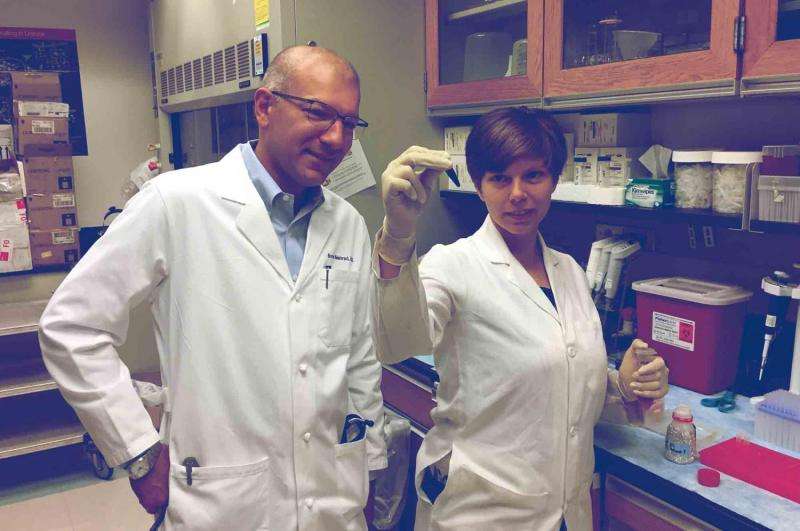Discovery may help patients beat deadly pneumonia

Researchers have found that a hormone responsible for controlling iron metabolism helps fight off a severe form of bacterial pneumonia, and that discovery may offer a simple way to help vulnerable patients.
The researchers at the University of Virginia School of Medicine have identified a key hormone critical for preventing pneumonia bacteria from spreading throughout the body. The hormone, hepcidin, is produced in the liver and limits the spread of the bacteria by hiding the iron in the blood that the bacteria need to survive and grow.
Stimulating hepcidin production in patients who do not produce it well, such as people with iron overload or liver disease, may help their bodies effectively starve the bacteria to death. That finding could be lifesaving for these vulnerable patients, especially as pneumonia bacteria grow increasingly antibiotic-resistant.
"The rate at which these organisms become resistant to antibiotics is far faster than the rate at which we come up with new antibiotics. It's a race, and they're winning it," said researcher Borna Mehrad of UVA's Division of Pulmonary and Critical Care Medicine. "Increasingly, the choice of antibiotics to treat these infections is more and more limited, and there are occasions where there just isn't an antibiotic to treat with, which is a very scary and dangerous situation."
Helpful Hormone
Mehrad and his team, including colleagues at the University of California, Los Angeles, found that mice that had been genetically modified to lack hepcidin were particularly susceptible to bacterial pneumonia. Nearly all of the mice had the pneumonia bacteria spread from the lungs into their bloodstream, ultimately killing them.
"It's the exact same thing that happens in people," Mehrad said. "The mice that lacked the hormone weren't able to hide iron away from the bacteria, and we think that's why the bacteria did so well in the blood."
Researcher Kathryn Michels, a graduate student in Mehrad's lab and the first author of a manuscript outlining the findings, noted that many people lack the hormone because of genetic illnesses or liver disease.
"It's quite common," she said. "We think this line of research is very relevant to the many people who can't make this hormone very well and are, clinically, very susceptible to these infections."
She noted that there is already a drug in development that mimics the function of hepcidin and could be used to decrease the iron levels in the blood of pneumonia patients who lack hepcidin. That drug has been developed primarily to treat chronic iron overload, such as is seen in people with hereditary hemochromatosis, but the new research may give it another, lifesaving application.
"We think that short-term treatment with this drug should be an effective way of treating these [pneumonia] infections," Mehrad said. "At least in mice, it seems to work extremely well."
The findings have been published online by the scientific journal JCI Insight.



















